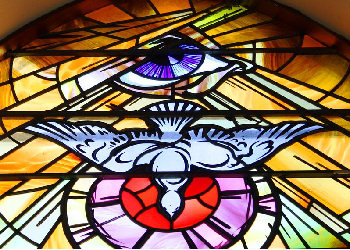The testimony of a researcher (part 1 of 2)
Wisdom, science and intellect
There is a phrase taken from the book of Wisdom, in which Solomon elevates prayer to obtain Wisdom, which has remained strongly impressed during my university studies, and still accompanies me today in the daily work of the scientific research activity of which I am occupied, in which I always ask not only for the gift of Wisdom but also for those of Intellect and Science. The phrase is: “Though one be perfect among the sons of men, if Wisdom, who comes from you, be not with him, he shall be held in no esteem” (Wis 9,6). It made me think and it still makes me think today. “Easy”, perhaps, to understand and share for those who believe, “difficult” if not “impossible” to accept, for those who do not believe. Apparently in support of faith alone, in reality an essential element and a complement to what is missing from reason. Yes, because for me, “science and faith” is not an impossible or irreconcilable combination.
Compared to the past, in which, due to some prejudices, approaching faith with science (and vice versa) seemed unthinkable, today, it is increasingly understood that there can be a peaceful and fruitful dialogue between them. It did not surprise me to read, some time ago that, according to an international research conducted by the Rise University (Houston, Texas), in Italy about 65% of the scientists interviewed said they were believers and considered science with religion and reason with faith to be compatible. A percentage that, more or less, I also find in my work environment.
Making the words of Benedict XVI my own, I believe that science is a marvelous instrument of progress that exalts man’s reason, distinguishes him from the rest of creation and represents the expression of his being creature made in the image and likeness of the Creator, that is, of that (incarnate) God who is Logos.
I am strongly convinced that science, if used for the greatest good of humanity, is and will always be a source of greater knowledge and will add a piece to the infinite mystery of God. The most delicate problem that scientists, especially today, find to face, concerns the use that is made of it. Let us think of great discoveries and technological innovations. Each new technology carries with it the risk of abuse, but technology is not a problem (think of the internet, the great technological advances in the medical field, which allow you to save lives, robotics, artificial intelligence, or to the computer-brain interfaces that allow those suffering from neurodegenerative diseases to communicate) but the improper use made of it: the tool that could save a life is the same that is used to remove it; an instrument like the internet that could feed the knowledge of the truth is sometimes used as a means of spreading lies and confusing minds and hearts and the robots that could help man are used to replace him.
Unfortunately, today it happens to find a science that has freed itself from the Lord and Creator of matter and man and which also thinks of replacing man with a machine. But it must not be forgotten that every human being is unique and special, because he is enriched by the spirit that makes him intelligent and free, capable of relating to his Creator and which makes him irreplaceable (Sir, 17).
Patrizia Cherubino, PhD, Neuromarketing





